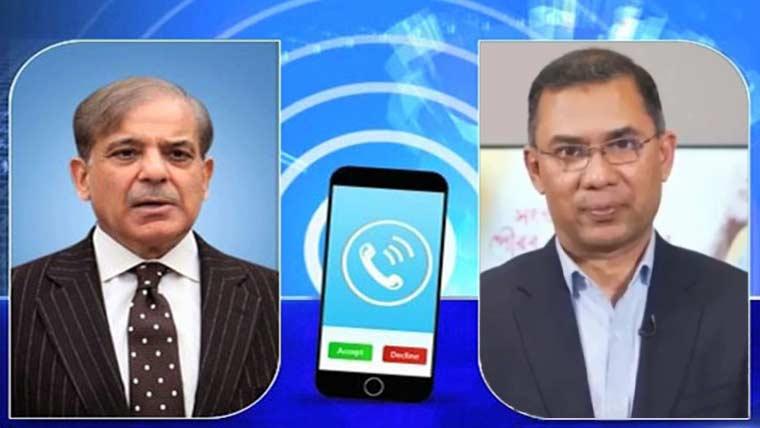NAB amendments: Justice Shah observes Imran Khan should have approached parliament instead of SC
The PTI chief claims in his plea that the new NAB laws are “violation of fundamental rights”

Islamabad: PTI Chairman and former prime minister Imran Khan should have taken up his reservations against recent amendments to the National Accountability Bureau (NAB) ordinance in the Parliament instead of bringing the matter to the Supreme Court, Justice Syed Mansoor Ali Shah said on Wednesday.
The three-member bench comprising Chief Justice of Pakistan Umar Ata Bandial, Justice Syed Mansoor Ali Shah and Justice Ijazul Ahsan took up Imran’s plea today which claims the new NAB laws are “violation of fundamental rights”.
While hearing the plea taken by the PTI chief today, Justice Shah said the public had trusted Imran by electing him a member of the National Assembly. “Why did he leave the assembly without the wish of the people of his constituency?” he inquired, adding that the PTI chief could have raised his objections against the NAB ordinance in the parliament as well.
In the beginning of the hearing, Imran’s counsel Khwaja Haris made an argument before the bench that the new amendments had rendered the accountability law “ineffective”.
“In the past, the Supreme Court had declared corruption cancer for the country,” he recalled. “Public officeholders were never given exemption in any accountability laws that were made.
“And the law for them [public officeholders] has been the same since 1949,” Imran’s counsel argued, adding that holding a public office was a “sacred responsibility”.
At this, Justice Shah said that the court could not do anything if the parliament had abolished a law. “Has the court ever restored a repealed law before?”
Haris replied that in 1990, the court had restored a repealed law.
At one point during the hearing, CJP Bandial remarked that the parliament was only submissive towards the Constitution and shariah.
Justice Ahsan concurred and said that accountability was a fundamental principle of Islam.
Haris, while continuing his arguments, said important changes had been made to the accountability laws regarding plea bargains. “Those who do not pay instalments of the plea bargain have been facilitated [under the new law].”
The lawyer contended that earlier, action was taken against those who failed to pay the plea bargains. “After the amendment, the plea bargain of the non-payer will expire,” he said, adding that if the corruption case was regarding an amount of less than Rs50 million, the charges against the accused would be automatically removed.
“Under the amendment, the accused can claim the amount of plea bargain deposited after being acquitted,” he pointed out. “A person who has paid the full plea bargain amount can also ask for the money deposited.”
Here, Justice Bandial observed that this way the state would have to pay billions of rupees.
Justice Shah also wondered if taking money from the accused under pressure was correct. To this, Haris replied that the plea bargain was only approved by the accountability court.
“But if the accused is under pressure, they can let the court know,” the lawyer added.
Later, the top court adjourned the hearing as of October 6.
Multan hosts All Pakistan Long Range Shooting Championship
- 4 hours ago

Westminster Int'l School Bahria Campus concludes Phoenix Fest & Mavericks 2026 in grand style
- 3 hours ago

T20World Cup high voltage clash: India set 176 run target for Pakistan to win
- a day ago

Good Luck, Have Fun, Don’t Die is a rollicking parable about this moment in tech
- 15 hours ago
Blast near Bannu police station leaves two dead, 17 wounded
- 5 hours ago
FinMin claims losses of SOEs plummet by around Rs74b in three years
- 5 hours ago

High voltage clash: India defeat pakistan by 61 Runs, qualify for Super Eight
- a day ago
PMD forecasts rain wind with thunderstorm in Balochistan, KP
- 25 minutes ago
Field Marshal Asim Munir vows to deepen Pak-UAE partnership
- 4 hours ago

Gold prices plunge in Pakistan, global markets
- 5 hours ago

PM invites Austrian businesses to expand investments in Pakistan
- an hour ago

SSWMB earns national recognition for clean Sindh initiative
- a day ago






